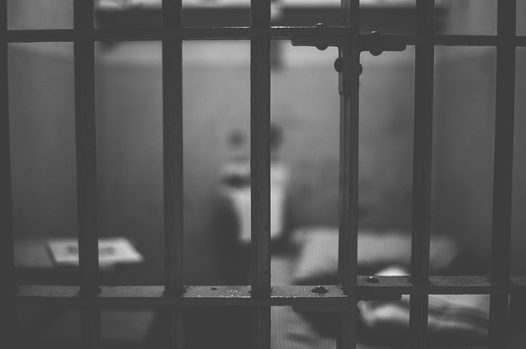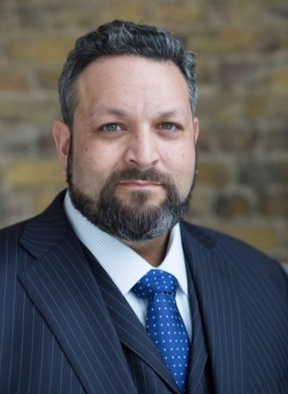What To Do If You Are Accused of a Sexual Offence: A Comprehensive Guide from our Sexual Offences Solicitors

Sexual offences are serious crimes that can have a significant impact on your life and reputation. If you find yourself wrongly accused of a sexual offence in the UK, it is crucial to take immediate action to protect your rights and navigate the legal process effectively.
If you have been accused of a sexual offence, contact our expert defence solicitors now on 020 7387 2032 or complete our online enquiry form here. You can also read some of our best defence case studies from our sex offence defence lawyers here.



Below is a comprehensive guide where we will provide you with step-by-step advice on what to do if you are accused of a sexual offence. From seeking legal representation to understanding the legal framework surrounding sexual offences, we will cover everything you need to know to protect your interests. As well as consulting this guide, you should seek specialist legal advice on the criminal justice process regarding crimes of a sexual nature.
The criminal justice system takes a very serious line on sexual offence allegations, including historic sexual offences, and the crown prosecution service will often seek the maximum sentence should you be made to stand trial. As such, you should take legal advice as early as possible when facing any sexual allegation.
Understanding Sexual Offences in the UK

To effectively navigate the legal process when facing accusations of a sexual offence, it is essential to have a comprehensive understanding of the legal framework surrounding these offences in the UK. Sexual offences encompass a wide range of illegal behaviours and offences relating to sexual exploitation, including rape, sexual assault, child sexual abuse, prostitution, and possession or distribution of indecent images. The Sexual Offences Act 2003 provides guidance for defining and categorising sexual crimes in the UK.
Definitions of Sexual Offences & Sex Crimes
-
Rape: Rape involves non-consensual sexual penetration. It is a serious offence that carries severe penalties.
-
Sexual Assault: Sexual assault refers to non-consensual sexual contact, including touching or groping, without the individual's consent.
-
Child Sexual Abuse: Child sexual abuse (or other sexual offences involving children) involves forcing or inciting a person under the age of 18 to engage in sexual activity. This can include physical contact, non-penetrative acts, or non-contact activities such as grooming or exposure to sexual images. This can also include making or taking indecent images of children.
-
Indecent Images & Indecent Photographs: It is illegal to take, make, possess, or distribute indecent images of children. This includes photographs, videos, drawings, tracings, or digitally created images.
-
Prostitution: Various offences are related to prostitution, including soliciting in public, managing a brothel, or encouraging another person to become a prostitute for gain.
-
Obscene Pornography: Pornographic images that are deemed obscene, such as those containing extreme violence, are illegal. It is also an offence to disclose private sexual images of another person without their consent.
Consent and Reasonable Belief
Consent is a crucial element in sexual offences. The law considers an offence to have occurred if the accused intentionally touches another person sexually without their consent, or if they coerce the person to engage in sexual behaviour against their will. The accused person must not reasonably believe that the person consented to the touching. Determining the reasonableness of belief depends on various factors, including sufficient evidence of the steps taken to ascertain consent.
What counts as possession of indecent images?
Possession of indecent images in England and Wales is primarily governed by the Protection of Children Act 1978 and the Criminal Justice Act 1988.
Section 1 of the Protection of Children Act 1978 makes it illegal to take, permit to be taken, distribute, show, possess, or publish any indecent photograph or pseudo-photograph of a child. A child is defined as anyone under the age of 18. The Act also covers images that are stored digitally.
Section 160 of the Criminal Justice Act 1988 makes it an offence to possess an indecent photograph or pseudo-photograph of a child. This includes having such images in your home, on your computer, or in other places you control.
The law does not provide a specific definition of what is considered "indecent". This is generally left to the discretion of the jury in a trial. However, the Crown Prosecution Service provides some guidance, stating that an image is likely to be considered indecent if it "depraves and corrupts" those who are likely to see it.
The sentencing for possession of indecent images of children can vary depending on the severity of the offence. The Sentencing Council provides guidelines that suggest a range from a community order to imprisonment.
Defences to accusations of sexual offences
There are a few defences available under these Acts, including having a legitimate reason for possession, not knowing the image was indecent, and not having seen the image. However, these defences are limited and specific.
What is the punishment for sending indecent images?
Possession of prohibited images is not specifically defined in the Acts, but case law suggests that a person is in possession of an image if they have custody or control over it. This includes illegal images still stored on a computer, even if they have been deleted but can be recovered.
What is Category A in child images?
Category A in the context of indecent images, according to the laws of England and Wales, refers to the most severe type of indecent images involving children. This category includes images involving penetrative sexual activity, sexual activity with an animal or sadism, or images that may cause serious physical harm to the subject.
What is the sentence for Category A images?
The law that governs this is the Sentencing Council's "Definitive Guideline" on the "Sexual Offences Act 2003". The Act criminalises the taking, making, distribution, and possession of such images. The maximum penalty for these offences can be up to 10 years imprisonment, depending on the circumstances.
The Sentencing Council's guidelines provide a detailed breakdown of how offences are categorised and the factors that can affect sentencing. Category A offences are considered the most serious, with a starting point of 1 year custody if it is a first-time offence, and up to 3 years custody for multiple offences.
Seeking Legal Representation
When facing accusations of a sexual offence, it is vital to seek legal advice from experienced and specialised sexual offences solicitors, such as our team at Lewis Nedas Law. Whether you are falsely accused of such an offence, or you believe there are mitigating factors, legal representation is crucial to protect your rights, guide you through the legal process, and build a robust defence for your case.
Interacting with the Police and Investigation Process
When facing accusations of a sexual offence, it is crucial to handle interactions with the police and the investigation process with care. When you contact Lewis Nedas Law, our team can expertly guide you through the investigation process. Here are important considerations:
Police Contact and Arrest
If the police contact you regarding a sexual offence allegation, it is essential to seek legal advice before providing any statements or participating in interviews. You have the right to have a legal representative present during any police interviews.
Call Lewis Nedas Law on 020 3131 7426 as soon as possible if you are made aware of an ongoing investigation.
Voluntary Interviews and Legal Representation
In some cases, the police may request a voluntary interview. Before attending the interview, consult with your solicitor to ensure you are prepared and fully informed. Your solicitor will be able to guide you through the interview process and protect your rights.
Bail and Conditions
If the police do not have enough evidence to charge you immediately but believe further investigation may lead to charges, they may release you on bail. Bail conditions may be imposed, such as living at a specific address or surrendering your passport. It is important to adhere to these conditions and seek legal advice if you wish to challenge them.
Investigation Process
Sexual offence investigations can be lengthy and complex. It is important to cooperate with the investigation while ensuring your rights are protected. We will liaise with the police on your behalf, ensuring that the investigation is conducted appropriately.
Dealing with Charges and Court Proceedings
If you are charged with a sexual offence, you will need to navigate the court proceedings. Here are key considerations:
Court Appearance and Plea
Depending on the severity of the offence, your case may be heard at either the Magistrates' Court or the Crown Court. At your court appearance, you will have the opportunity to enter a plea. Your team will guide you on the best course of action based on the evidence and circumstances of your case.
Trial Process and Defence Strategy
If your case proceeds to trial, we will work with you to build a robust defence strategy. This may involve challenging the prosecution's evidence, cross-examining witnesses, presenting evidence in your favour, and advocating for your innocence. Your solicitor will guide you through every step of the trial process, ensuring your rights are upheld.
Sentencing and Consequences
If found guilty of further offences, the court will determine the appropriate sentence or disposal for the offence. The severity of the sentence will depend on various factors, including the nature of the offence, any aggravating factors, and your previous criminal record. Your solicitor will advocate for the most favourable outcome in your case.
Protecting Your Reputation and Privacy
Accusations of a sexual offence can have a significant impact on your reputation and personal life. It is important to protect your privacy and reputation throughout the legal process. Here are key considerations:
Media and Publication
Accusations of sexual misconduct often attract media attention. While it may not be possible to completely prevent media coverage of sexual allegation, your legal team will work to protect your identity and privacy as much as possible. However, if your case proceeds to prosecution, your identity may be disclosed unless it leads to the identification of an alleged victim or a child.
Employment and Disclosure
Accusations of a sexual offence may affect your employment and professional standing. Depending on your occupation or voluntary role, the police may inform your employer or regulatory bodies about the allegations. It is important to understand your contractual obligations regarding disclosure to your employer and seek legal advice on how to navigate this process.
Frequently Asked Questions
To address common concerns surrounding accusations of sexual offences, we have compiled a list of frequently asked questions:
Can I be charged with a sexual offence without evidence?
While corroborating evidence strengthens a case, sexual offences often rely on the complainant's account. The absence of corroborating evidence does not prevent charges of sex crime from being brought. The jury will consider the credibility of both the complainant and the defendant when making a decision.
What should I do if I am wrongly accused of a sexual offence?
If you are wrongly accused of a sexual offence, it is essential to seek immediate legal advice. Refrain from communicating with the accuser and preserve any evidence, such as text messages or emails, that may support your case.
What should I do if the police contact me regarding a sexual offence?
If the police contact you regarding a sexual offence, exercise your right to remain silent and seek legal advice before providing any statements. Your solicitor will guide you through the process, ensuring your rights are protected.
What should I do if I've been contacted by an Operation Green Jacket Officer?
If you are contacted by an Operation Green Jacket Officer, it is crucial to seek immediate legal advice and representation. Independent, specialist legal advice and representation tailored to your case can make a significant difference in successfully defending your case.
Call for our expert legal advice on 020 3131 7426 immediately.
Do I need a solicitor if I haven't done anything wrong?
Even if you believe you are innocent, it is crucial to seek legal representation. Sexual offence cases can be complex, and having a solicitor by your side ensures that your rights are protected and that you are prepared for the legal process.
How can I prove that I haven't done anything wrong?
Proving innocence in sexual offence cases can be challenging, particularly when there are no witnesses or supporting evidence. Your solicitor will help you gather and preserve any evidence that may support your case and build a strong defence strategy based on the circumstances of your case.
How long will the process take?
The duration of sexual offence cases varies depending on several factors, including the nature of the sexual offence allegations, whether you are charged, and how the police handle the investigation. Sexual offence investigations can be lengthy, especially if the allegations are historical.
Will my name be published in the media?
While efforts will be made to protect your identity and privacy, media coverage of sexual offence cases is not uncommon. If your case proceeds to prosecution, your identity may be disclosed unless it risks identifying an alleged victim or a child.
What if my accuser says the offence took place a long time ago?
There is no specific time limit for more serious criminal allegations in England and Wales. Historical sexual allegations alone can be challenging to defend due to the lack of contemporaneous evidence, but with the guidance of an experienced solicitor, you can navigate the process effectively.
Lewis Nedas Law, specialist sexual offence solicitors in London
Being accused of a sexual offence is a serious matter that requires swift and decisive action. By seeking legal representation from experienced sexual offences solicitors, understanding the legal framework, and following the appropriate steps throughout the legal process, you can effectively protect your rights and navigate the challenges ahead. Remember, it is crucial to consult with a professional sex offences solicitor who will provide the expert guidance and support you need during this difficult time.
If you are facing allegations of a sexual offence, our team of highly experienced sexual offences solicitors is here to help. We are committed to providing you with the expert legal representation you need to safeguard your rights and achieve the best possible outcome.
For further information or to speak to a top criminal defence lawyer please telephone us on 020 3131 7426, complete our online enquiry form or contact Jeffrey Lewis, Leila Abdul-Rasool, Siobhain Egan, Miles Herman, Tony Meisels or Keith Wood.



















